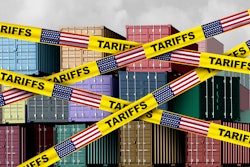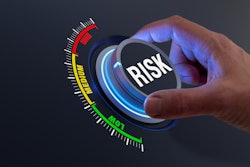
Forced labor generates an estimated $236 billion in illicit revenue annually, according to data presented by International Labour Organization, built on the exploitation of nearly 28 million people, including more than 3 million children. Beyond its devastating human toll, forced labor poses escalating financial, legal, and reputational risks for companies operating across global supply chains.
Addressing this issue isn’t just a moral obligation; it’s a business imperative. True progress demands collective action across governments, companies, and civil society to build systems that protect vulnerable people at scale.
A turning point for supply chains
Regulatory pressure is intensifying. Governments are relying on data and analytics, not self-reporting, to trace supply origins. In 2025, the United States expanded enforcement of the Uyghur Forced Labor Prevention Act, detaining billions in goods suspected of ties to forced labor. Since 2022, over 17,000 shipments worth $3.7 billion have been held at U.S. ports.
The EU adopted a sweeping ban on forced-labor-linked products by 2027, while Canada, Mexico, and the U.K. strengthened its modern slavery laws. The message is clear: supply chain transparency is no longer optional.
Litigation and reputational risks are also growing. Companies are implicated in forced labor face brand damage, shareholder scrutiny, and legal action. Responsibility for human rights now sits at the C-suite and board level, integrated into business performance and investor expectations. Courts and regulators increasingly hold companies accountable, making due diligence a legal requirement, not a brand exercise.
Consumer expectations are also transforming the market. New research from the Dynamic Sustainability Lab and Thomson Reuters shows that 70% of Gen Z consumers have changed purchases over ethical labor concerns, and 80% are willing to pay more for responsibly made goods. Nearly all—96%—Gen Z respondents believe they can drive corporate change through purchasing. Companies that dismiss this generation’s influence do so at their peril; by 2030, Gen Z will represent 17% of U.S. retail spending.
The obstacles to true transparency
Despite progress, opacity persists. Supply chains often span multiple tiers and jurisdictions, complicating traceability and due diligence. Ethical sourcing still struggles to gain executive prioritization, even as it carries both strategic and human rights value.
No single organization can end forced labor alone. Governments, businesses, and NGOs must collaborate decisively to eradicate modern slavery. Fortunately, technology and data are making supply chain due diligence more achievable than ever.
How companies can take action
1. Develop a risk-based compliance strategy. Implement continuous due diligence for contractors, suppliers, vendors, and partners. Use monitoring tools that flag adverse media or high-risk changes, and conduct horizon scans to anticipate emerging regulations rather than react to them.
2. Leverage technology and data. AI, machine learning, and trade lane analytics can illuminate supply chain risks, monitor real-time threats, and identify alternative sourcing options based on trade laws, tariffs, and geopolitical factors.
3. Increase transparency. Publish ethical sourcing policies, pursue independent audits, and seek third-party certifications for forced labor–free operations. Transparency not only reduces risk—it differentiates your brand. While 91% of Gen Z are aware of modern slavery, only 43% can name a brand linked to forced labor. This gap represents an opportunity for ethical companies to build trust and loyalty through proactive disclosure.
4. Adopt a values-based posture. Beyond compliance, companies should make values-driven decisions—refusing to engage with entities connected to forced labor. Embedding these commitments in business strategy signals integrity to investors, regulators, and consumers alike.
Setting the standard for global commerce
Forced labor isn’t just a human rights crisis—it’s a market distortion. Ethical companies cannot compete on equal footing with those profiting from labor exploitation.
In a global marketplace defined by transparency, due diligence is non-negotiable. Companies that lead on this front protect their brands, mitigate risk, and—most importantly—help safeguard millions of lives.
The next generation of consumers will demand goods produced free of forced labor—and they’ll reward companies that deliver. Business leaders who act now, building transparent systems anchored in freedom and justice, will set the standard for the future of global commerce.



















